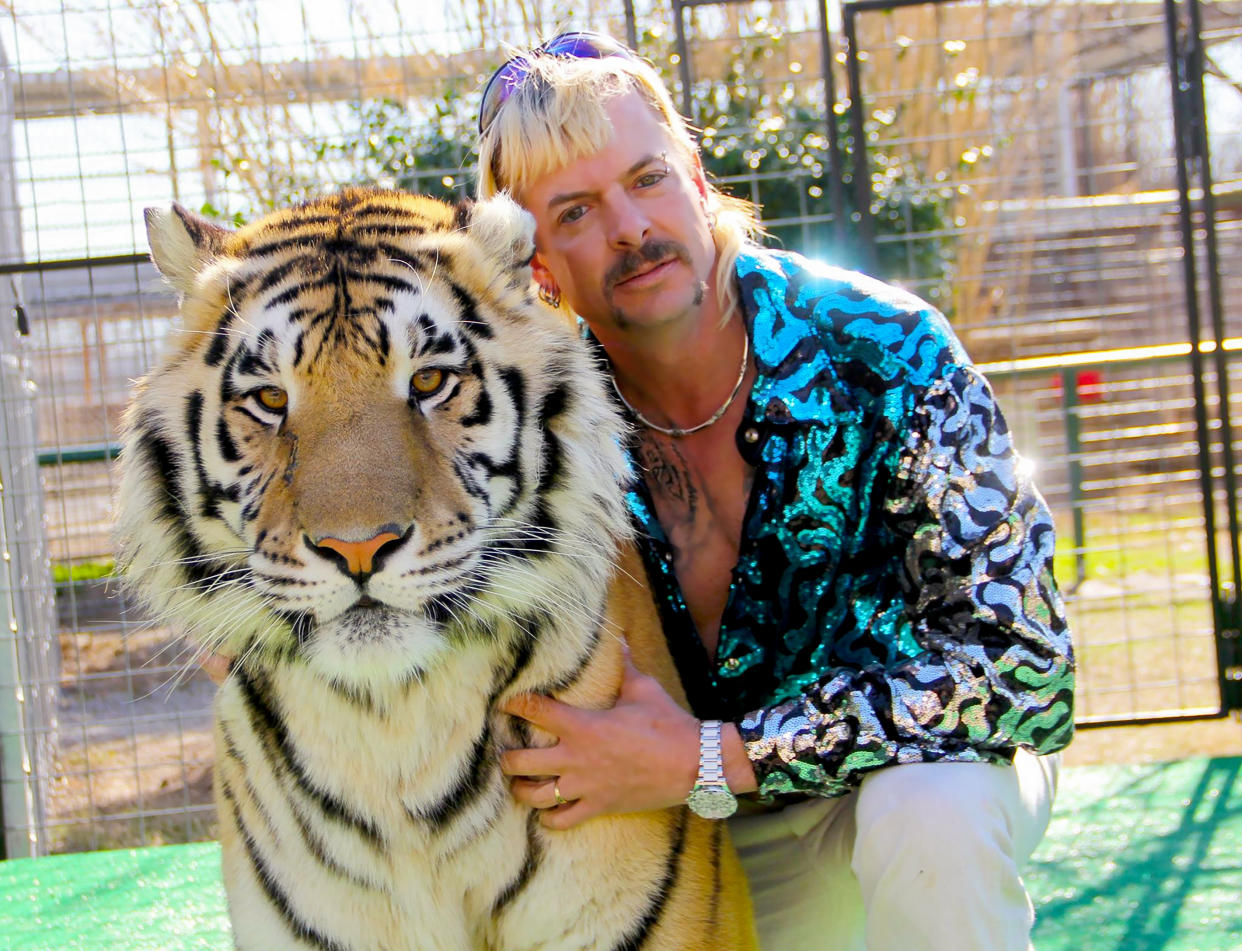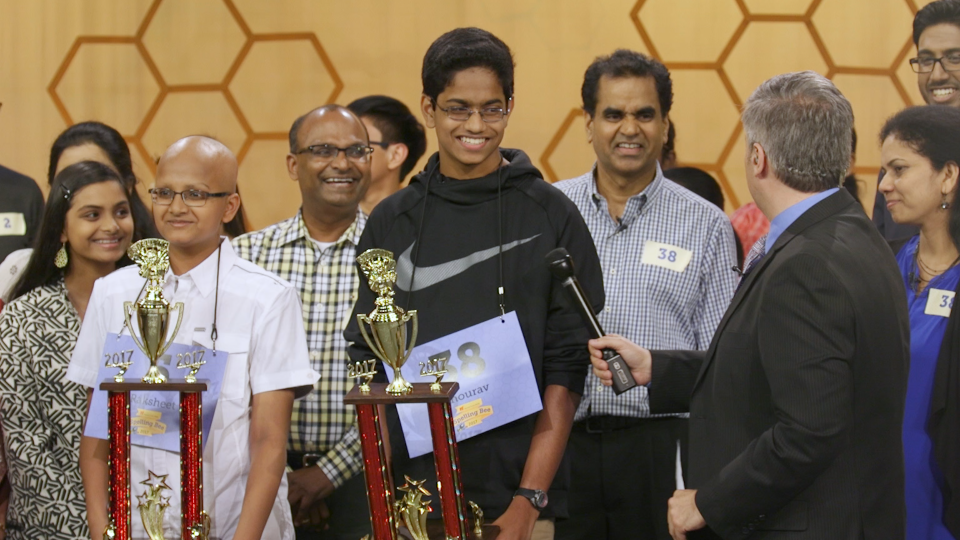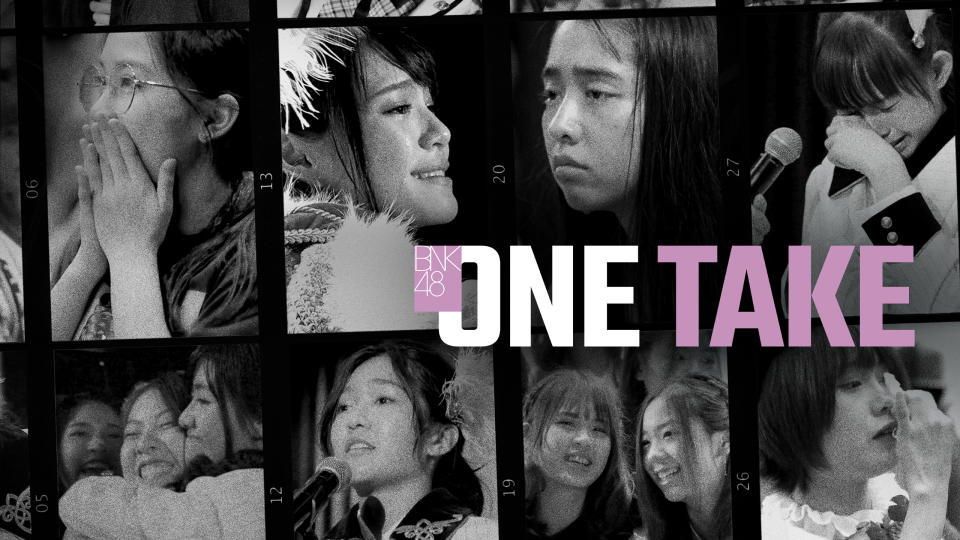INTERVIEW: Netflix's Adam Del Deo on the rise of documentaries and finding more diverse voices

Who would have thought that a documentary series about big cat owners in the US would be the breakout show of the year? But numbers don’t lie, and by some estimates, nearly 65 million households watched Tiger King on Netflix in the first four weeks after its release.
Those kinds of numbers of mind-boggling, but as if to prove that this trend was not just a fluke, the release of The Last Dance, about basketball legend Michael Jordan’s career, saw 24 million households tune in within a month of its release. By some estimates, 165 million households, or about 9 out of 10 households with Netflix watched at least one documentary in the past year.
These were numbers that would have been unheard of years ago, but Adam Del Deo, Netflix’s VP of Original Documentary Film & Limited Series is not surprised. Speaking to Yahoo Lifestyle SEA from Los Angeles, Del Deo said that people are drawn because they see their own lives reflected in documentaries. “(Documentaries) really enable people to tell a wide variety of stories...it really gives a kind of larger world view to our subscribers about these incredible stories all over the world.”
He also acknowledged that there has been an uptick in viewing numbers due to the global COVID-19 situation. “We're really seeing it kind of as a distraction for people,” he said, “So, you know, as important as watching documentaries on subjects that are happening around the world to have an academic or intellectual experience... (people are also) watching a lot of documentaries to kind of get their mind off everything.”
Asian subscribers may have been frustrated at the limited library available to them when Netflix first launched in the region, but Del Deo is quick to reassure that Netflix is committed to not only expand the platform’s documentary offerings but also finding more diverse, authentic voices from the region.
We spoke to Adam Del Deo and Donut about their thoughts on documentary making and the importance of telling stories that may have once been considered too niche.

Why do documentaries play such a big role in our lives today?
Adam Del Deo: We’ve seen that things like great storytelling and great filmmaking are things our subscribers are really being drawn to. And for us, it really enables us to find diverse voices all over the planet to tell these stories that connect not only with local communities. When we first greenlit Wild, Wild Country, it was something that was not available in Asia at first.
We thought it was a strong story that would resonate with our English speaking audiences. But lo and behold, when we launched, we were available in India and we saw this really strong uptick in viewing. So now we're seeing stories that are transcending borders around the world and being able to share cultures and points of view and different perspectives. Documentary is a great place for that to exist.
Could you walk us through a bit of the process that Netflix goes through when it tries to greenlight or commission documentary?
Deo: That can happen in a variety of different ways. Again, we always put the story first. We're looking for stories that are resonating, that are authentic, that are special. But sometimes we see that early stage, it's when a filmmaker comes in and they pitch it to us, we might connect with it. There also might be when we see something more midstream. So that might be a few scenes of a film that are shot, or maybe a rough cut. We look at it at that point and decide whether or not we think it's the right fit. And also we look at the finished movie.
In the case of Donut’s film, this is something that was already completed. Those films are often submitted, through producers or sales representatives or agents, and quite often we'll see them at film festivals around the world. So we have a global team covering Europe, Latin America, and also separate executives covering Asia. They're going around to pitch forums, film festivals and acquiring from there as well.
How are you looking to diversify the sorts of documentaries that you want to feature?
Deo: As we grow globally and as our subscriber base is growing quicker outside of the US than it is inside the US, now it’s our job to find filmmakers like Donut that we may not be familiar with. It’s our job to define these new voices because they're telling you exciting stories all around the world.
We did make some bets early on in Asia, like with Wild, Wild Country. But we also saw something like Street Food, do very well, and that really resonated all throughout Asia. Also titles like Period. End of Sentence. which won the Academy Award two years ago. And also, most recently, Arashi’s Diary, about the boy band in Japan.

What’s the last documentary you watch that left a lasting impression on you?
Deo: It’s a title that we recently released called Crip Camp, which was a film that we premiered this year at the Sundance Film Festival. It’s a look at the passing of the American Disabilities Act, and giving the disabled community a voice that they haven't had in the past at this scale. Now the American Disabilities Act allows access to buildings all over the country, provides protections for getting jobs for the disabled community and it's been really a pioneering act. This film really, really left a lasting impression on me.
With the current events happening in the US and all around the world, what documentaries do you think people should watch to try and learn more about the issues that led to these events?
Deo: Well, there's obviously historic events happening in the US and outside the US with people showing up in solidarity for African-Americans. I think a documentary that is very kind of current and relevant would be Ava DuVernay’s 13th, which looks at the criminal justice system and the system of mass incarceration in the US. That film was nominated for an Academy Award.
Most recently there was also a series called The Innocence Files. It was a partnership with the Innocence Project, which looks to free wrongfully convicted inmates in the country. And we had a stellar group of filmmakers, Academy Award winners Roger Ross Williams and Alex Gibney, as well as Academy Award nominee Liz Garbus direct some the episodes in the series. We also just launched on our website a Black Lives Matter page where we've curated stories that are impactful and that tell the African-American experience in the US.
Adam, you were also a documentary filmmaker. Do you have any advice people who want to be a documentary filmmaker like you?
Deo: There are a lot of ways to tell your story. Sometimes sitting down interviewing everyone like we're doing right now with each other, oftentimes we go to archival material. And then also with verité footage, following people in real life, in the streets, what they're doing.
That's historically how you've seen documentaries made. But what we're seeing now is this use of visual language. Graphics in a title like The Great Hack, which we recently released, about Internet privacy, with very strong visual effects teams coming in to enhance the storytelling.

How did you get your start in filmmaking?
Donut: I started acting and directing in university. I started my career when I was 17 as an actress in Thailand and continued working on it, until one day I got bored with what I'm doing and realised I have my story to tell. I started with a short film and then a feature film. Six years ago, I remember I went to the cinema and I saw All Things Must Pass: The Rise and Fall of Tower Records. I really liked it. I liked the way the director talked aboout the music store. And I thought maybe this is this is what I'm looking for. So after I did my feature film, I became interested in making documentaries.
My first documentary was The Journey, about our beloved HM King Bhumibol Adulyadej of Thailand, when he was studying and living in Lausanne back in 1938 to 1941. And I worked on One Take two years ago. It was going to be in the theatres but because of COVID-19 [it could not be shown], so Netflix bought it instead.
How did you find out about being BNK48? Were you a fan of them before?
Donut: No, I had no idea about them before, I’m not a fan. It’s my co-producer who knows everything about BNK48. When the studio asked me to do this project, I was like, ‘oh my god, I cannot do this.’ But she is the one who wanted me to do it. And I think maybe she’s right, because if I didn’t do this project, I wouldn’t be here [talking to you].
What were some of the difficulties you faced when making this documentary?
Donut: What is difficult is that we needed archives. We need something that the fans have never seen before. But this band is very visual, like it's everywhere. So that's why it's really difficult to find something that no one has seen before. So I set up a situation where I put them together and asked him to do the acting class together to get the unseen picture and unseen footage.

How do you feel about this documentary being shown on Netflix?
Donut: It is a good opportunity for me as a female filmmaker from Thailand, I can tell my story and I can channel it to the world. I was telling Thai press previously, this year when Parasite won the Oscar, it showed that Asians can do it. When I talk to Adam, I’m so happy that he is really open to anything, any story. BNK48 is a niche story, but Netflix picked it as their first Thai original documentary on the platform, so I’m so excited and so proud.
Any advice for anyone who wants to become a documentary filmmaker?
Donut: Just follow your dreams. It has not easy for me at all. Not only because I’m a woman, but I am an actress. When I started to do my first feature film, I had to prove myself all the time because they can see me on TV and they don’t believe in me. So I have to prove and I have to learn a lot. I have to read a lot. I have to do more. And I’m lucky because when I finished this film, Netflix bought it and is going to be released on the platform. I tried pitching many times with Netflix, but it didn’t happen. But today I’m successful.
13th, Street Food, Wild Wild Country, One Take and BNK48 are available to stream on Netflix now.


